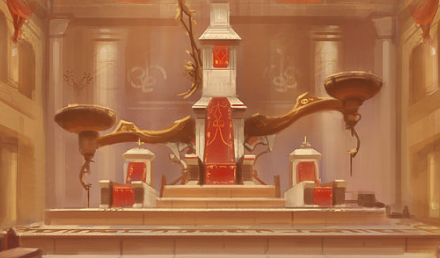In role-playing games, the very essence of the experience is that the players portray people who are not themselves; typically fictional creations, the characters’ motivations, goals, and attitudes are often very different from their player’s. It has been my experience, running games almost continually for twenty-plus years, that it takes some measure of comfort to really stretch beyond one’s own personally-held opinions, but that in the right environment, enthusiastic players of all levels of experience can enjoyably contribute to the game as a whole.
Something I often found myself explaining to new players is also necessary for those running games to remember as well – a character is not its player, and what they want or enjoy can be very different. I say this to new players because it’s common for people to make characters that are very similar to themselves, and then take things personally when ill befalls their fictional creation. “Just because our characters are enemies,” I would often say, since my role as a game-master was often to portray antagonists, “doesn’t mean we are. But by the same token, just because two characters are friends, doesn’t mean their players are either.”
I’ve had very rewarding and fulfilling friendships with people whose characters either I or my own character couldn’t stand. Similarly I’ve had in-character friendships where I personally didn’t think highly of the other player. For me, it all boils down to knowing that there is a separation between in-game and out-of-game, and trying to keep feelings and attitudes in one from affecting feelings and attitudes in the other.
When I give the “character versus player” advice to other game-masters, it’s often in the context of goals and desires. Often what the character wants would be disastrous for the game as a whole, or impractical, or just plain silly. This does not mean the player necessarily wants those things, and if there’s ever confusion as to what a player wants out of a game, there should be open discussion about that. Clear communication makes every role-playing game, particularly more intense scenarios like in a LARP environment, better for everyone.
Giving an example, I have previously posted a Vampire character concept where the character is trying to find an elder who once ruled over Great Britain for a millennium or more. As a player, I think this goal is ridiculous and should be beyond the scope of even the most wild game. Introducing a creature with that kind of power would completely destabilize and unbalance the local setting, and generally would be a pretty poor surprise to spring on an unassuming player-base. That said, the character is genuinely on the search for this mythical, god-like being, and the fact that he has spent years traveling the world, seeking this creature, drives many of his motivations and character interactions. In no way, from an out-of-character perspective, should his goal ever be realized within the confines of a game, because to do so would be to ruin or hamper everyone else’s experience.
I ran a Dungeons and Dragons campaign for several years, where one character’s driving goal was that she wanted to become a god. Her entire story revolved around trying to impress others, grow a cult, and eventually ascend to divinity. I spoke with the player to make sure they knew that, even with how powerful D&D characters could get, that it really wasn’t within the scope of that particular chronicle for any character to actually get that powerful. Their reaction made me smile, and still does today – “who would want to play a god? That sounds boring.”
At the end of the day, I think the main takeaway is to realize that characters, both in who they are and what they want, are not wholly representative of who their players are and what they want from the story being told. A very important aspect of role-playing for players of all experience to know, but also for game-masters to check in on from time to time as well.
In short: just because there’s an in-character argument doesn’t mean there’s cause for one out-of-character. Just because a character wants something, that doesn’t necessarily mean the player wants the same thing. Keep IC (in-character) and OOC (out-of-character) separated, and everything about gaming will be smoother and more enjoyable for all.















